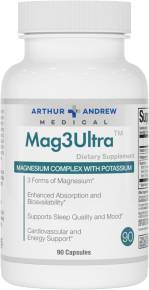One of the perks of writing about health issues is getting to learn about current trends, new research, and the ever-expanding boundaries of what’s out there for our well-being.
The downside is over-identification with the topic—and self-diagnosis. So far I’ve experienced various back ailments, a wonky thyroid, every symptom of menopause, Lyme disease, and seasonal allergies. I’ve even flirted with ADHD. I’ve plumbed the depths of super fruits, essential oils, spirulina, and magnets. I know my teas, and I’ve upped my Bs and Ds.
But when it came time to write about enzymes, I thought, “I’m safe—nothing in it for me.” Wrongo.
Seeing the Light
Ads tout enzyme strength in washing products, but who truly understands what they do in the body? Simply put, these tiny proteins are catalysts that ignite almost every biochemical action in the human body—they’re like the fuse on dynamite. No enzymes, no energetic explosions.
Unfortunately, the fuse is fizzling—nowadays, most of us are getting nowhere near enough of these little sparks. For one thing, as we age, our ability to produce enzymes decreases. For another, there’s a lot going on in our lives (like stress or illness) that compromises our ability to produce enzymes. No wonder many of us wind up with an enzyme deficit.
How can you tell you’re getting low? Bloating, gas, constipation, inflammation, yeast infections, and food-intolerance symptoms such as fatigue are a few of the signs. (Self-diagnosis alert!) That’s where supplemental enzymes come in.
ABCs of Digestive Enzymes
There are two major types: metabolic enzymes (the largest group), which help us breathe, move, think, talk, and maintain immunity; and digestive enzymes, produced by the pancreas, which break down most of the semi-digested food that leaves the stomach.
Metabolic enzymes can be manufactured only by the body, but digestive enzymes are another story. Supplemental enzymes are amazing multitaskers, with results that depend on when you swallow them. Taken during a meal, they tackle the digestive issues already mentioned (bloating, gas, signs of food senstivity) plus help you get the most bang for your buck, nutrition-wise.
“Enzymes really are the basic price of admission for life,” says Walter Crinnion, ND, chair of the Environmental Medicine Department at Southwest College of Naturopathic Medicine & Health Sciences in Tempe, AZ.
“Many individuals are spending their hard-earned cash to take dietary supplements,” he notes. “They’re also spending a bit more for organic produce and buying high-quality foods because they’re concerned about getting the nutrition they need. If they do all that, they should be taking enzymes. Because if you’re low in digestive ability, the best food or supplement is not going to be absorbed.”
Another Application
But there’s more. Taken between meals, digestive enzymes “work great for inflammatory musculoskeletal pain throughout the body,” according to Dr. Crinnion—everything from athletic injuries to arthritis. “Enzymes work for the kind of musculoskeletal pain you’d be taking ibuprofen for, or any of the other over-the-counter anti-inflammatory medications.” Consider proteolyic enzymes for this purpose.
Why between meals? “You do high-dose enzymes between meals because you don’t want those enzymes being used to digest the food you eat,” he explains. “You want them absorbed in the bloodstream and then going to the area of inflammation and quieting it down.”
The final word: “It’s more or less true that everyone should be taking digestive enzymes. I can’t think of a patient I haven’t put on them,” says Dr. Crinnion.
And just like that, I can picture myself with a bottle of enzymes.
